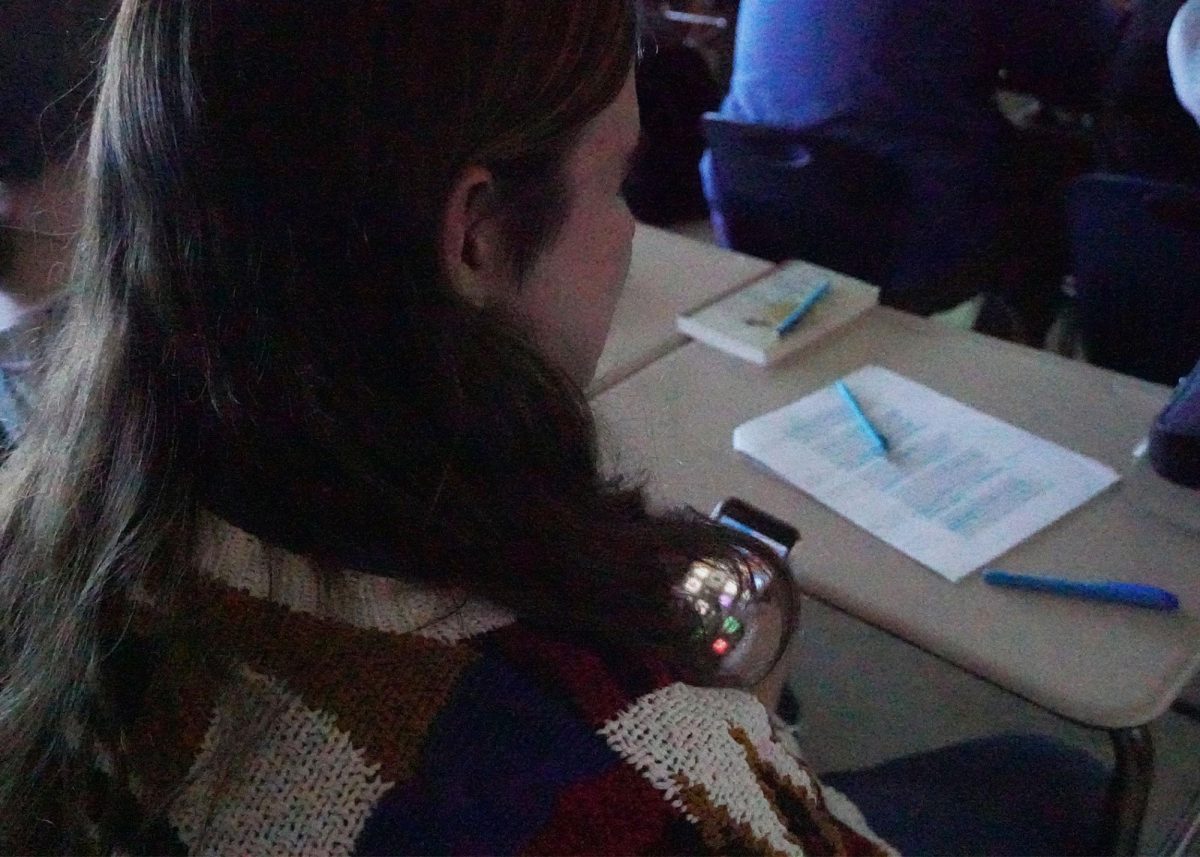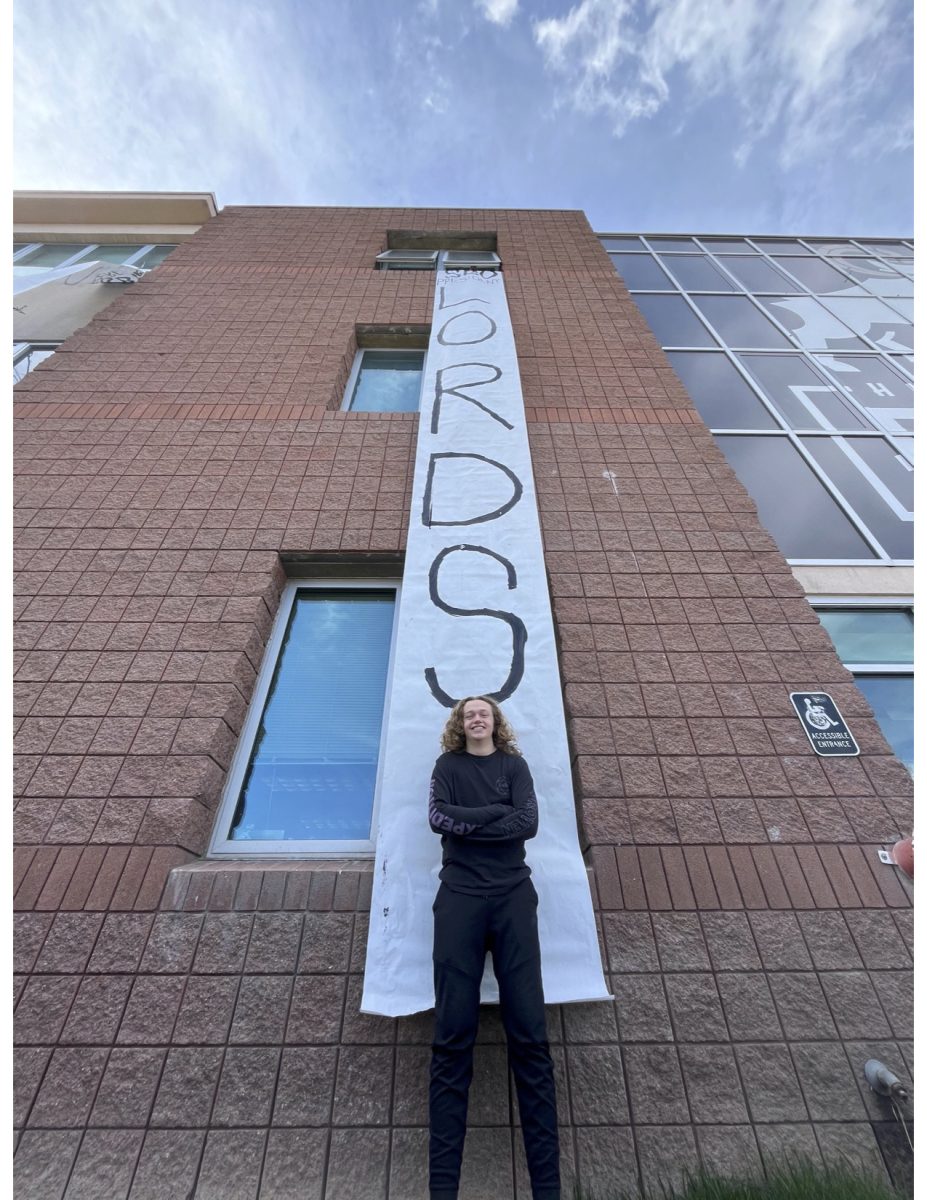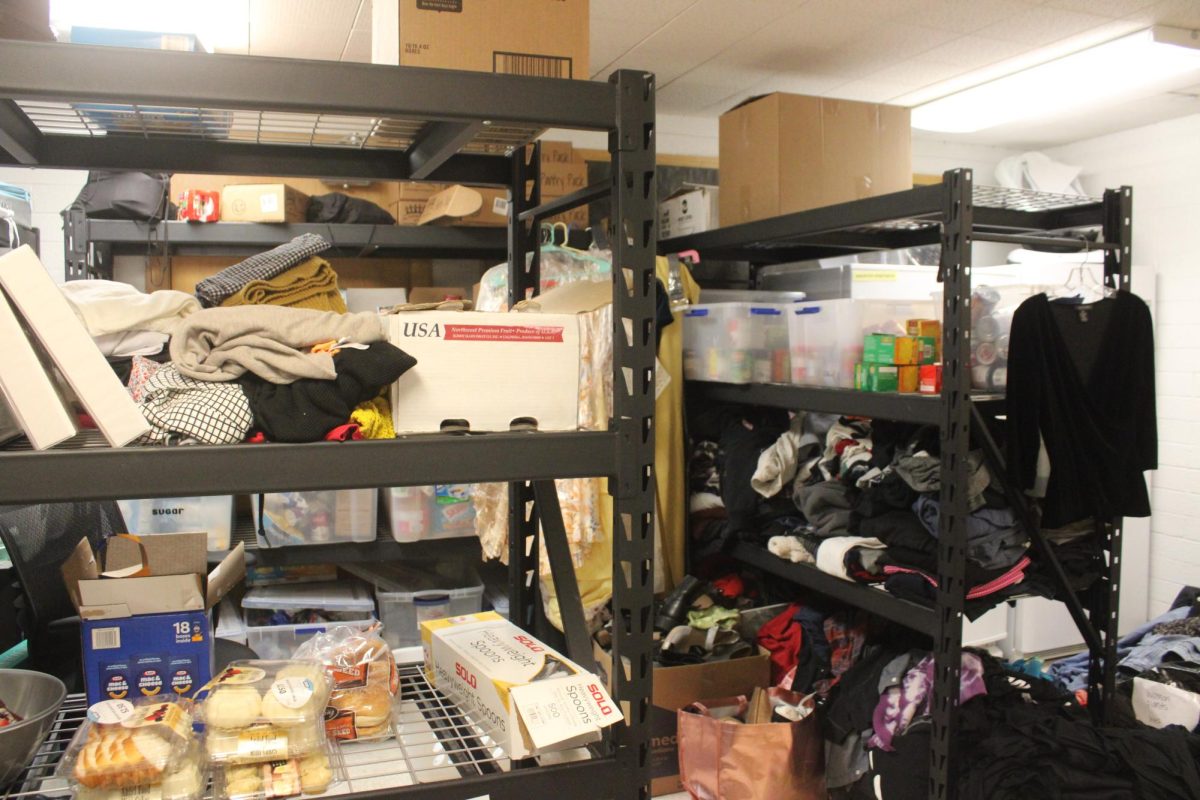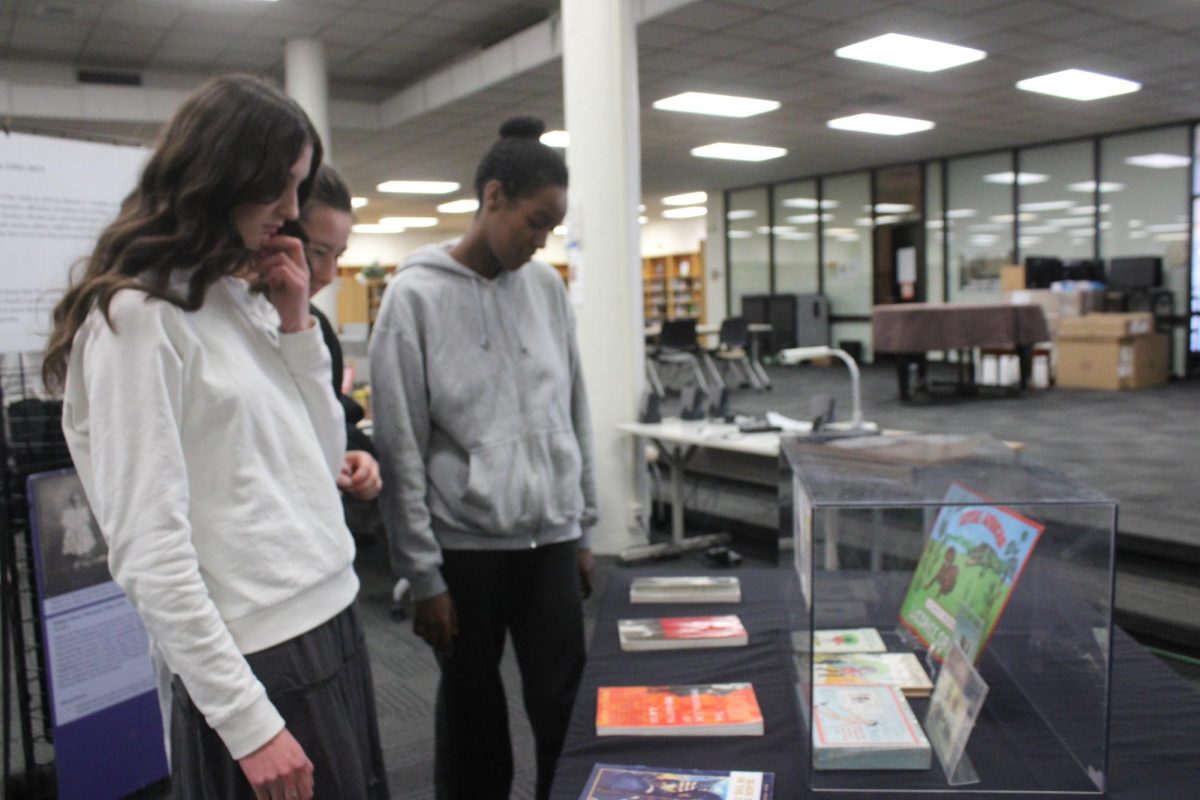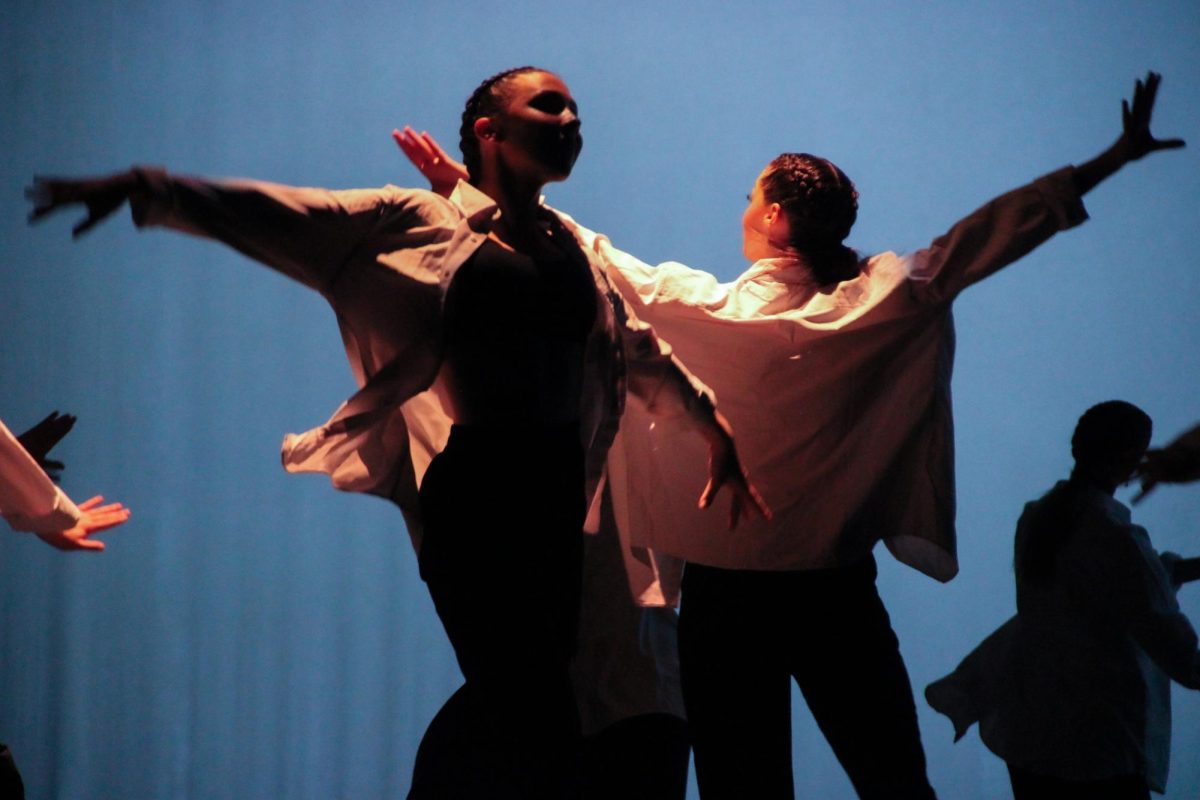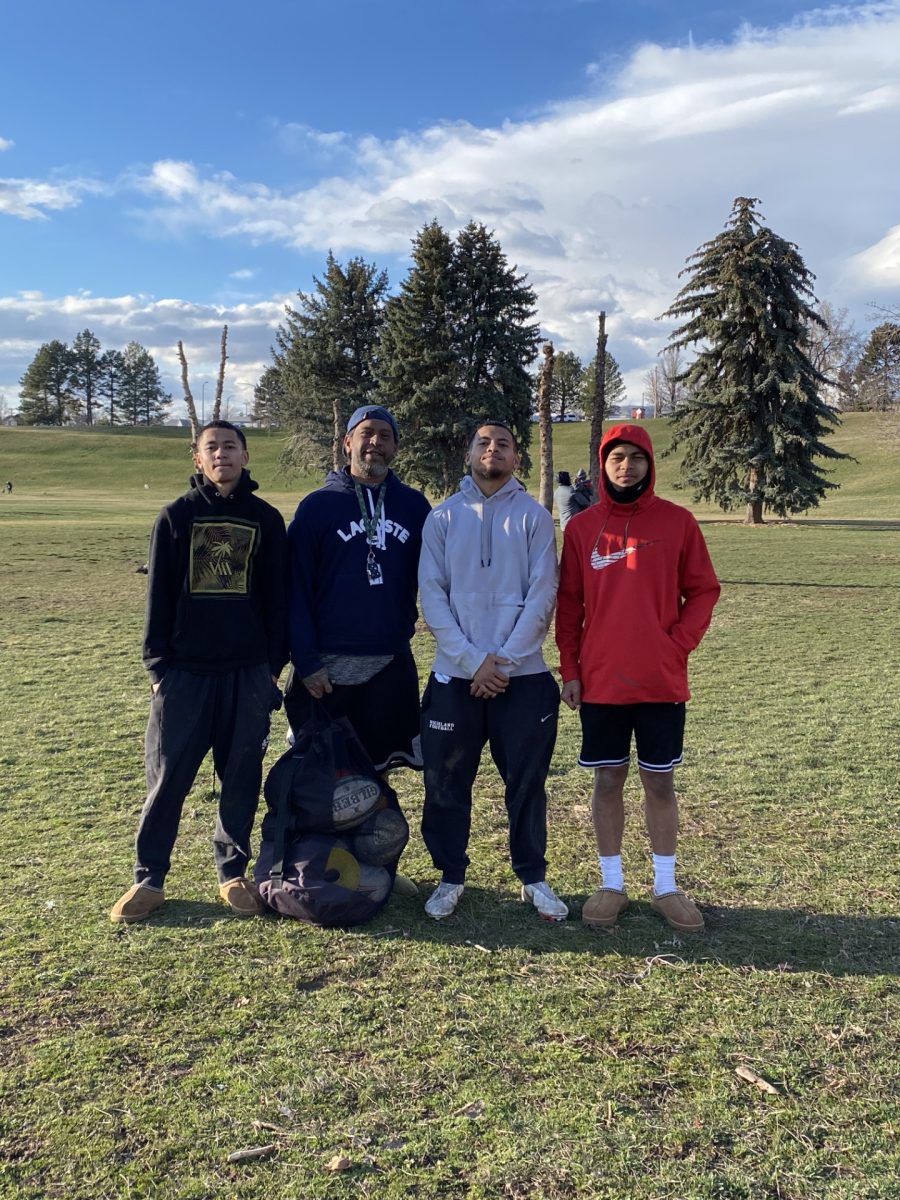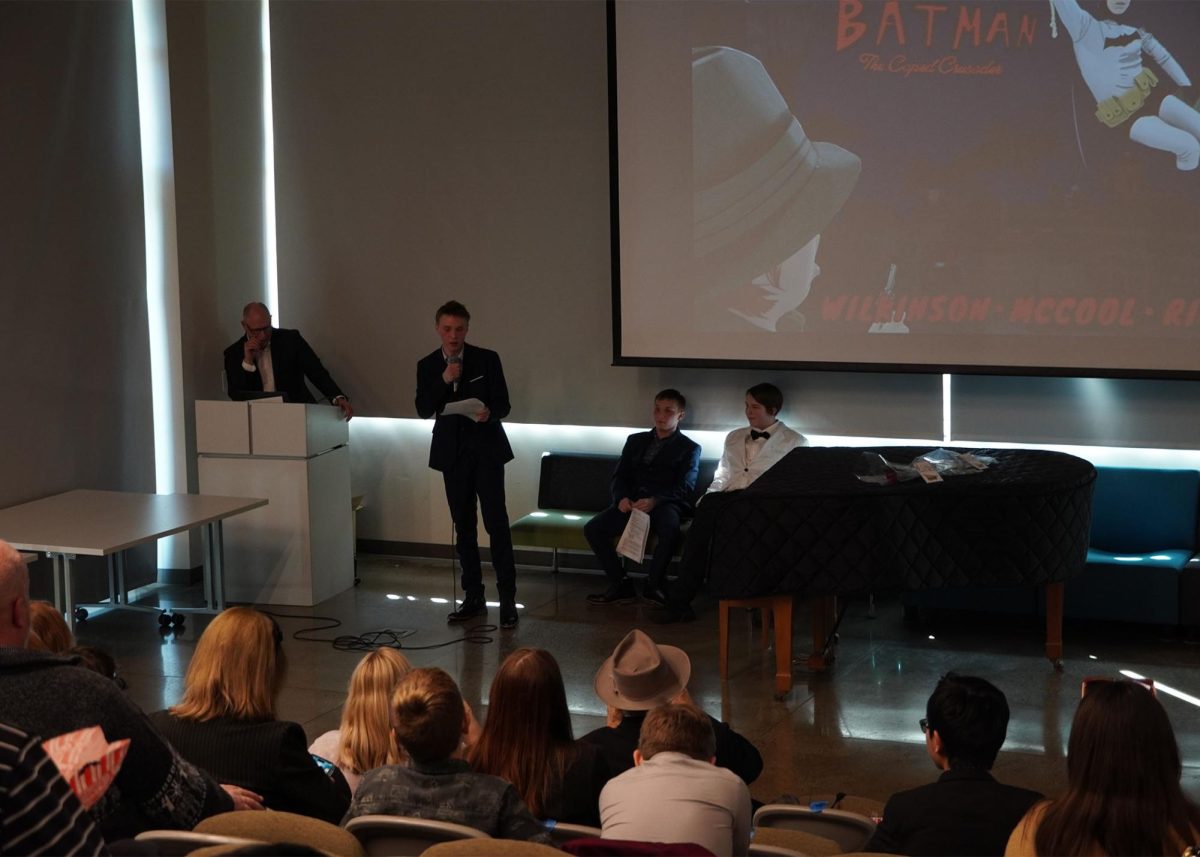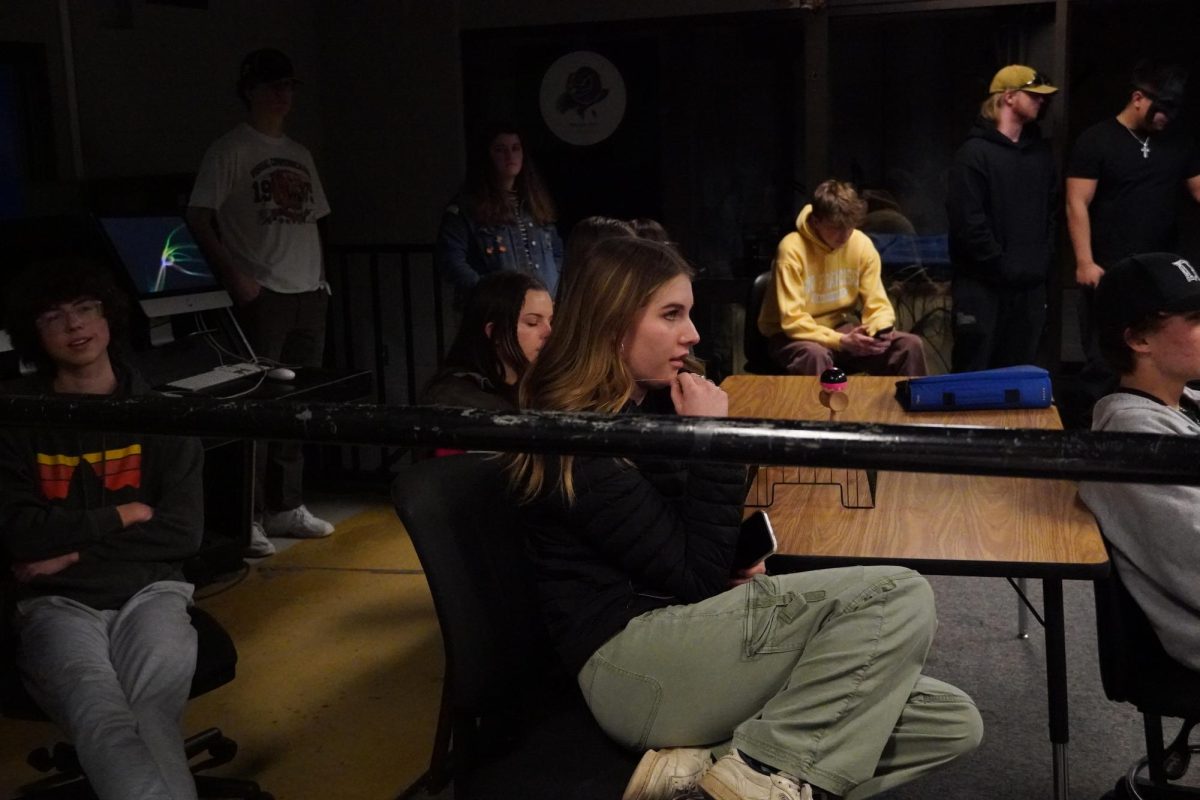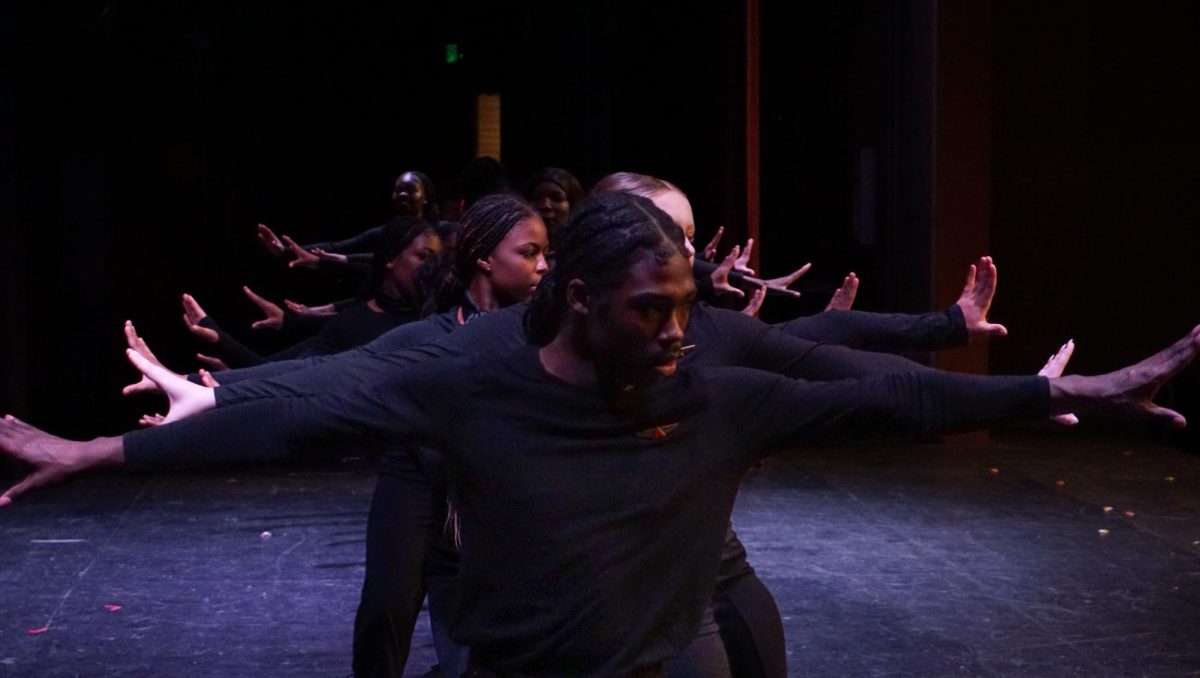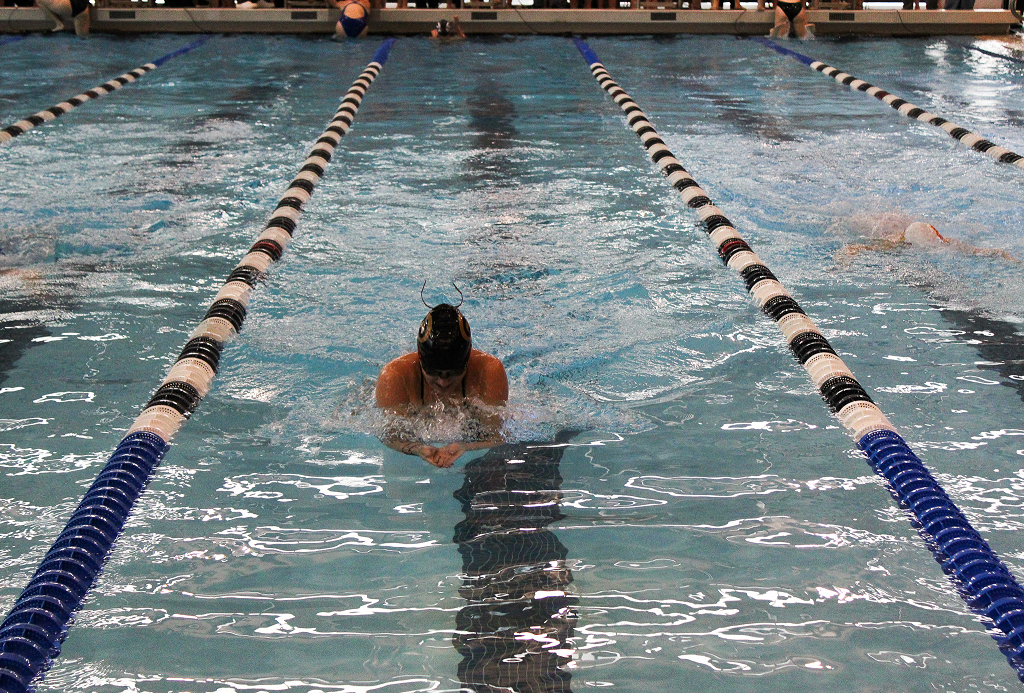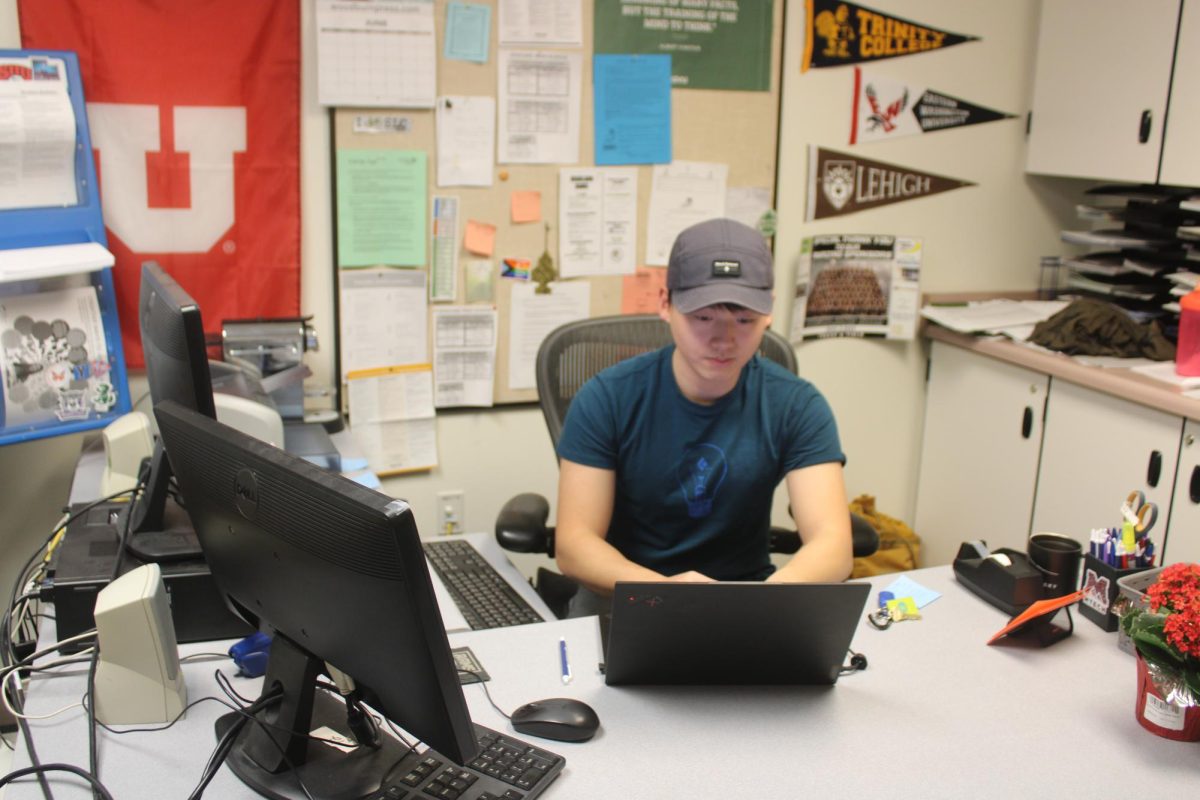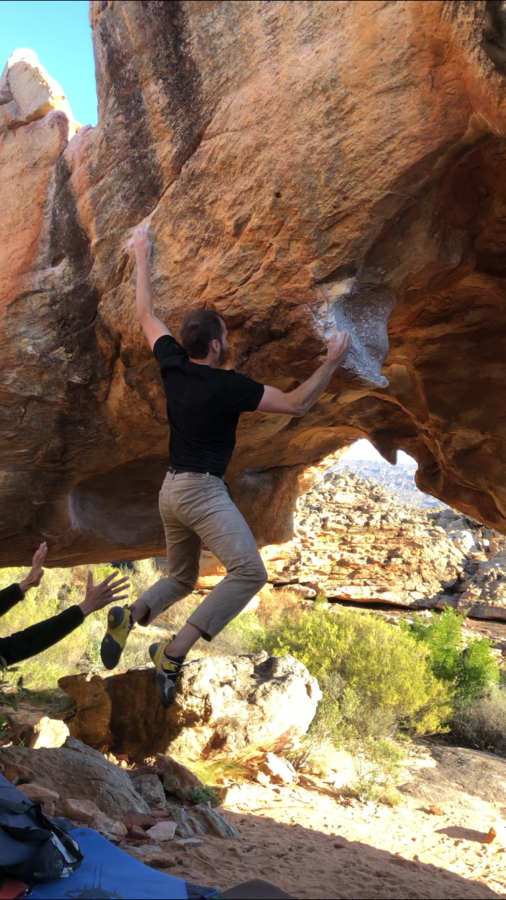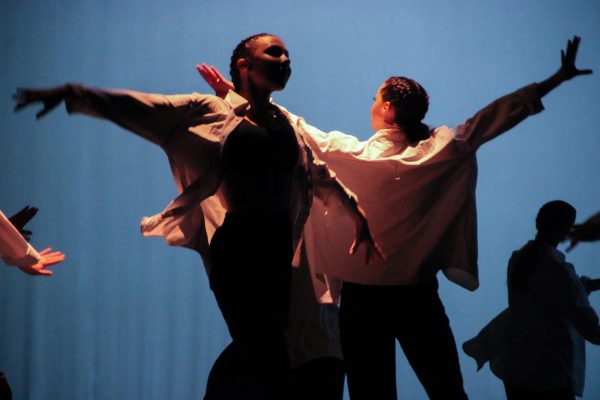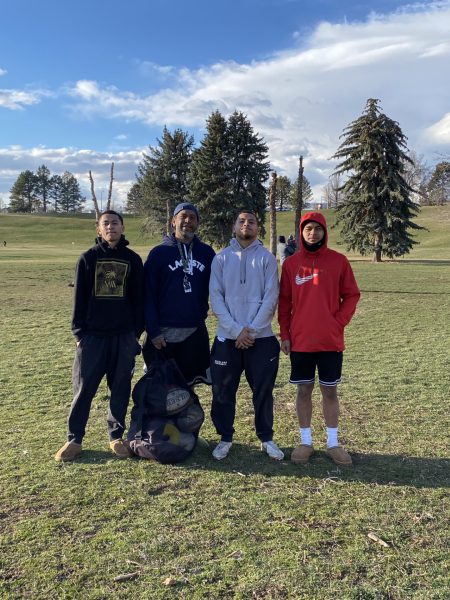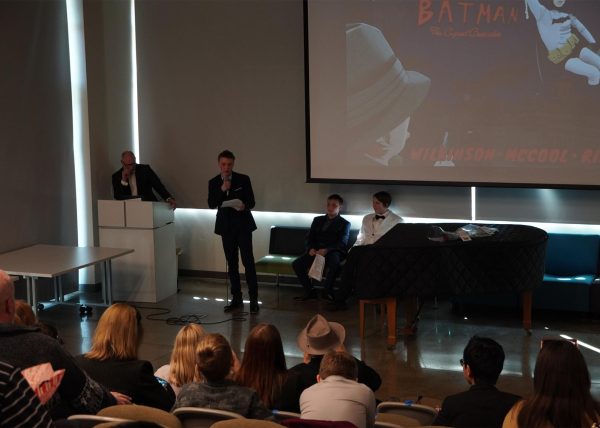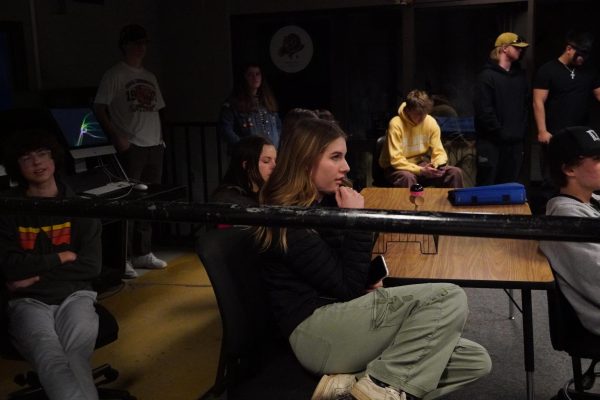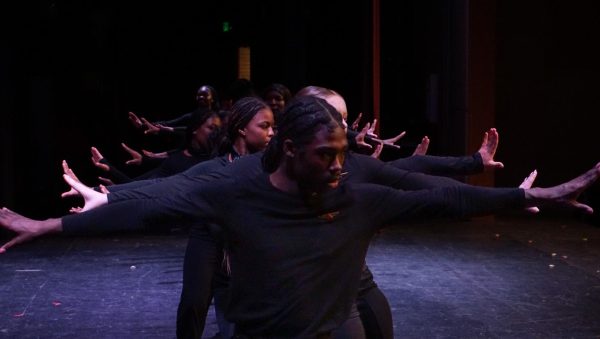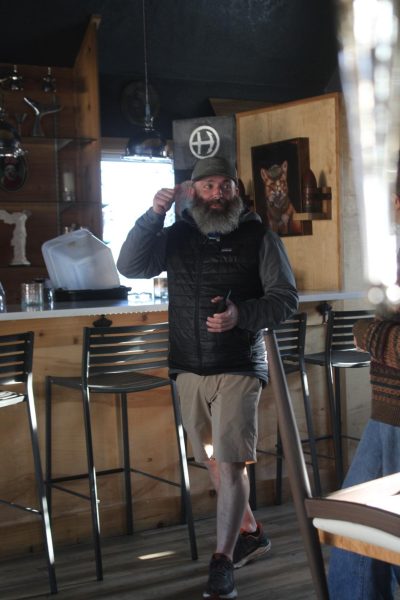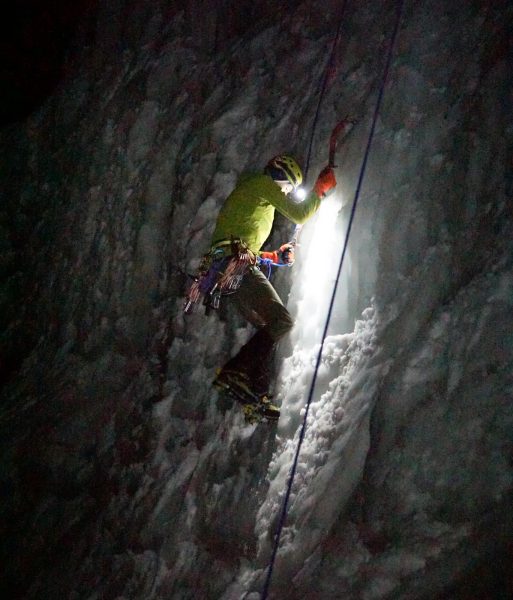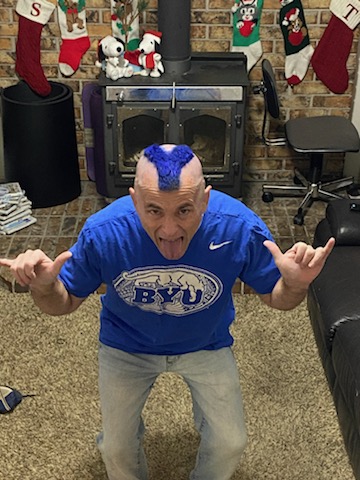A Climbing IQ
Highland English Teacher Creed Archibald Lives For Climbing
Photo Courtesy Creed Archibald
Creed Archibald hangs from a boulder problem in the Cederberg Mountain in South Africa.
September 5, 2019
Nothing pleases a crowd more than seeing someone take on an impossible challenge, defying all odds, then emerging victorious. Highland English teacher Creed Archibald has, over the course of several years, risen from humble beginnings to the completion of one of the world’s most challenging accomplishments in rock climbing.
Recently, through popular movie streaming services such as Netflix, viewers have had access to some extremely influential rock climbing films, such as The Dawn Wall, Valley Uprising, and most popular, the Oscar-winning documentary Free Solo. These movies have been popular with rock climbers and non-climbers alike. Because of these movies, there has been a massive jump in popularity for the sport. Archibald was attracted to the sport of rock climbing before it became a fad.
Archibald always loved the outdoors. He loved backpacking, skiing, fishing and just being in nature, but when he moved to Oklahoma about eight years ago, his options were limited. He found a small climbing gym called New Heights, which was not more than the size of a few Highland class rooms. After spending some time at this gym one of Archibald’s friends told him about an area with good rock climbing only a three hour drive away. This was his start to a vibrant and nearly life-consuming hobby. He later spent hundreds of dollars acquiring the gear and equipment he needed to be ready to face the rock climbing world.
This spark quickly grew into a flame. Since then he has climbed many famous climbs all over the western United States and Canada. Most notably, Archibald has climbed in Yosemite National Park, the climbing Mecca that all of these climbing documentaries are set in. The specific climb that Archibald and his wife conquered was the park’s most famous route, and the first route on El Capitan to ever be climbed, The Nose.
This 3,000 foot climb takes most climbers two to three days to complete fully, and even then only about 60 percent of climbers make it all the way. Archibald and his wife set out to complete this climb in one 24 hour stretch, a feat that not many non-professional climbers can do. They completed the climb in full in 22 hours, beating their goal by a large margin. Although they did not free climb this route, they did a more common method of climbing big walls known as French Free Climbing. This method allows the climber to pull up using bolts or cams placed into the rock when natural handholds aren’t available. This amazing accomplishment drained them so much that they nearly collapsed at the top of the cliff.
“When we got to the top, we were so tired we slept at the top of the mountain. We shared a jacket and slept on our rope before making the hike down,” Archibald said.
Archibald has seen first hand how these climbs can be completely life consuming and knows that a task like this is one is to be taken seriously. The increased attention that popular films have brought to the pastime have been both a blessing and a curse. While climbers are happy to see new people taking an interest in their sport, they are worried that these movies have set unrealistic expectations of what climbing is really about. Newcomers underestimate the amount of preparation and conditioning it takes to complete these world-class routes.
“These professionals spend years mastering one climb. It makes me feel like I have never really had a project because the most preparation I have ever put in is about six hours,” Archibald said.
Over the summer of 2019 Archibald and his wife spent a month in South Africa to face the climbs they had there. Most of their excursions are physically demanding and long challenges that can take days at a time. This trip was much different. It could not have been further from the norm of long rope climbs. In fact Archibald didn’t use ropes at all. The type of rock climbing he spent his time doing was a much shorter type of climbing that focuses on doing the hardest moves possible but on a much smaller scale than a longer climb. Ropes are not required for climbs like this because you never get more than a few meters off the ground. Even without ropes they still take precautions because when you do climbs this hard you will fall. At the bottom of the climbs there are crash pads to catch you incase you fall. Not only that but there are spotters just in case you have a chance to hit your head.
Archibald spent his time in the area around the Cederberg Mountains which is 3 hours outside of Cape Town. The landscape makes for high mountains but they are not the main focus for climbers heading to the area. Although Archibald did many climbs in this area his main project was a V7 called Dirty Lies. He spent a majority of the trip working to master this climb and eventually completed the climb near the end of the trip.
Some may think that heading all the way to Africa in the summer would be excruciatingly hot but in reality there is no better time because it is the middle of their winter. This makes the rock better for climbing because it is colder and allows for a better grip.
Some of these climbs, such as Alex Honnold’s free solo climb of El Capitan depicted in the film Free Solo, are extremely dangerous even for the world’s best climbers, and would be suicidal for an inexperienced climber to take on. Experienced, responsible climbers like Creed Archibald may not spend years mastering a single route to be able to climb without protective ropes, but they do something more important: master the techniques of placing protective gear correctly to catch them if (and when) they slip and fall.
Off the climbing walls and back in the classroom, Archibald leeds a career as a highland teacher, teaching only 9th grade classes. Often times in high school the people that have said to be the most influential are the teachers have during their freshman year. Students have often said that Archibald asks thought provoking questions and never shies away from a sarcastic dialogue between him and his students.
Despite already having a vibrant history of climbing amazing cliffs, Archibald still has more in store. Once school is out and he is no longer confined by his teaching schedule he is planning on taking a month-long trip to Africa to tame some routes on a global scale.
